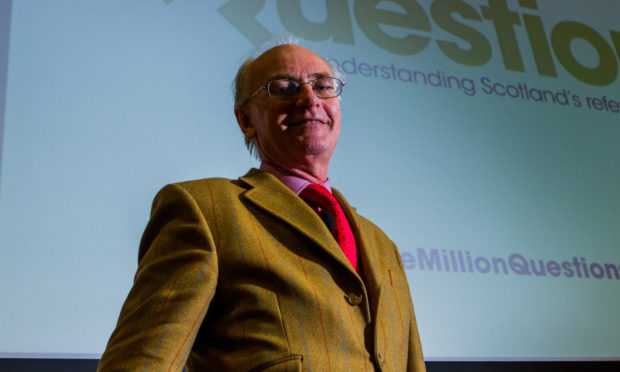Britain should be open to debate on reintroducing national service according to a St Andrews professor of international relations.
Sir Hew Strachan has suggested the UK may wish to heed talks in other countries and highlighted Denmark’s Defence Days, when some young people are compelled to sign up for service.
He made the recommendation in a paper by him and Ruth Harris, of Oxford University, on the utility of military force and public understanding of it in modern Britain.
They concluded: “Britain has established a near-universal and almost impermeable consensus against even discussing national service.
“Those countries with longer traditions of conscriptions but which no longer apply it are having conversations to which Britain might want to pay attention.”
Basic conscription in Denmark, they said, served as a recruitment pool for military service, while Germany is talking about opening recruitment to the Bundeswehr to citizens from across the EU.
In France, the study points out, President Macron, has opened debate on a broadly defined national service.
Being open to debate on national service was among a series of recommendations they made designed to start reversing terms of a debate which “assumes that the public is reluctant to condone, and finds it hard to understand, the utility of force”.
Sir Hew, a Pritzker Prize winner for lifetime achievement in military writing, is a member of the Chief of Defence Staff’s strategic advisory panel.
He is a former senior lecturer in war studies and international affairs at the Royal Military Academy Sandhurst.
His study was published by the military think tank the Rand Corporation.
It says that a communication gap between the government and public on defence policy can undermine development of strategy and potential for coherent use of military force.
It also states that the British government perceives the public as reluctant to support defence costs and unpersuaded of the utility of military force.
To generate a mature attitude to use of armed force and utility of war, it says “Britain will require a mature debate about defence”.
It concludes that the public needs to understand the issues around deciding to use military force, which is “morally fraught” but “can be the right decision”, and that “direct public engagement can promote understanding of today’s armed forces”.










